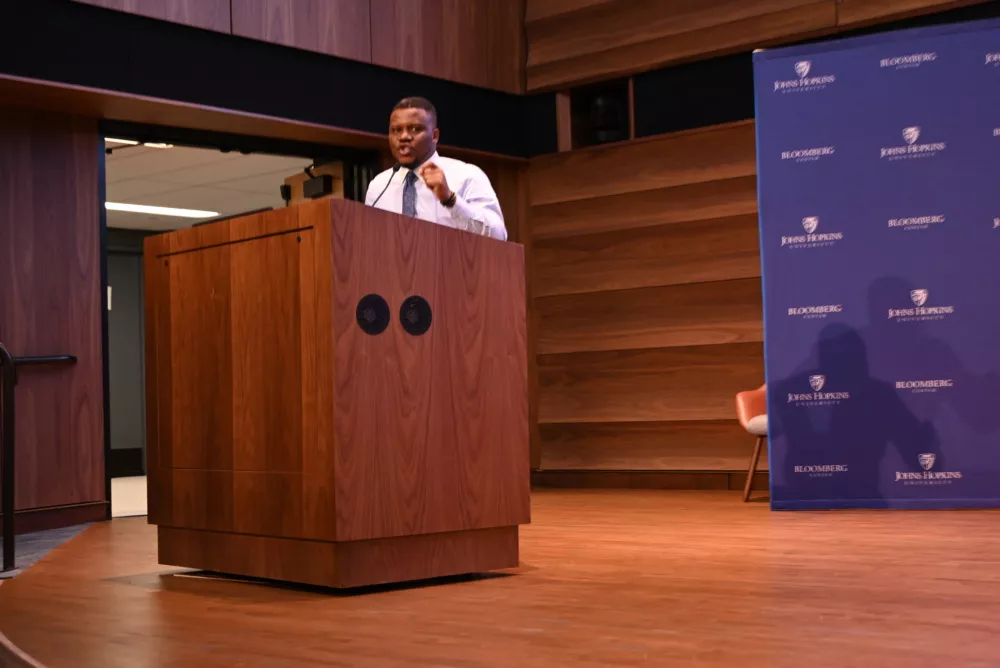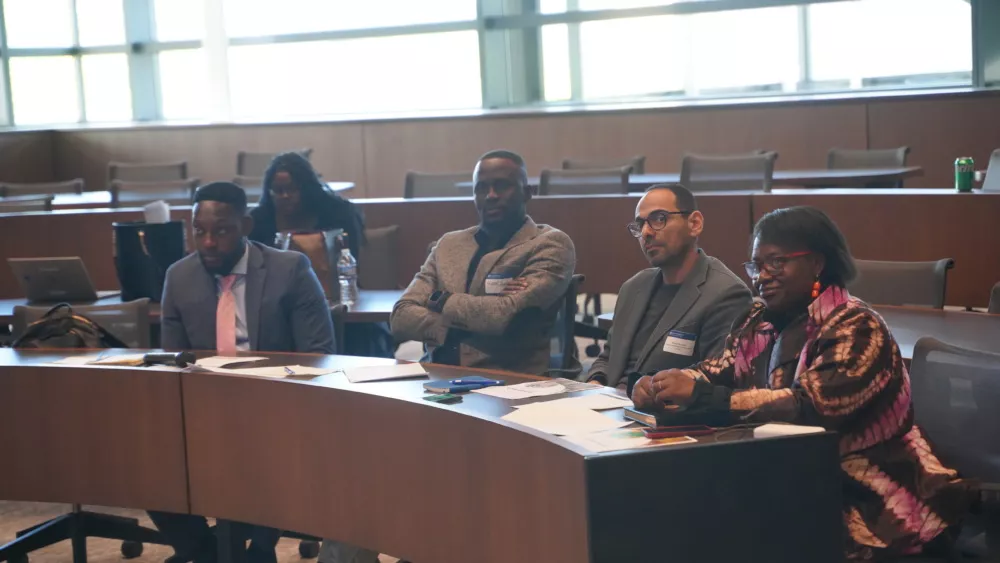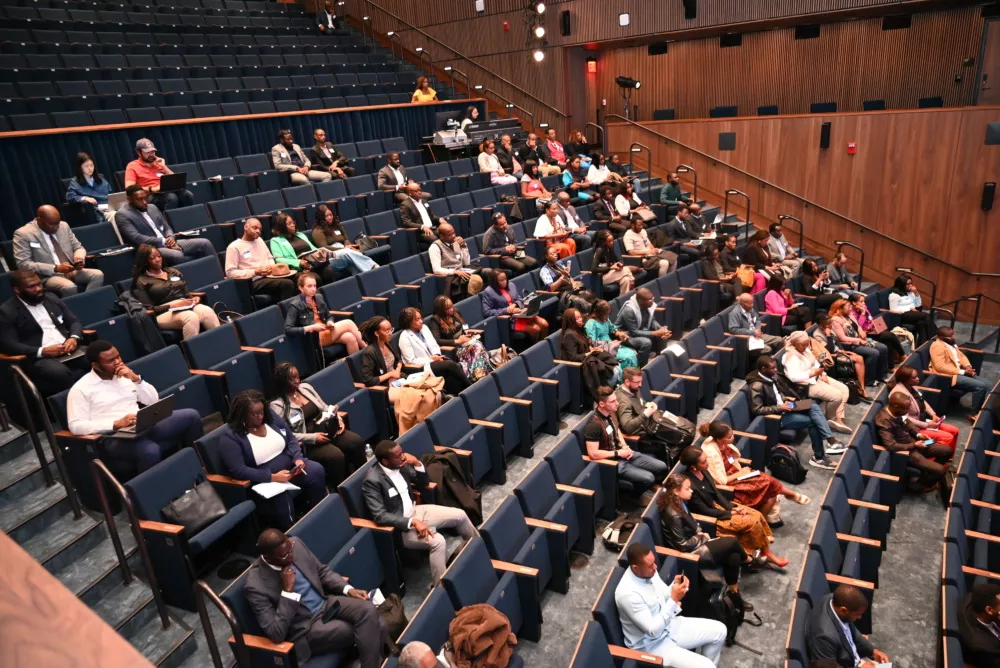This year’s student-led Africa Business Conference took place in Washington, D.C. at the Johns Hopkins University Bloomberg Center. The signature event for the Africa Business Club, the 2024 conference theme of “Africa’s Renaissance: Empowering Excellence and Igniting Growth” brought together students, faculty, and staff from Johns Hopkins as well as key executives, thought leaders, and visionaries from across the country to share insights on the trajectory of the African continent.
As innovation and economic growth continue to rise throughout the continent, the conference included keynote speakers and panel sessions that spanned critical themes in Africa, including innovation, economic growth, education, international trade, technological advancements, sustainable development, and global opportunities.
The conference began with a series of opening remarks from Deans across Johns Hopkins including Dean of Johns Hopkins School of Advanced International Studies, James Steinberg; Vice Dean of Education and Academic Affairs at Johns Hopkins School of Advanced International Studies, Chiedo Nwankwor; and Associate Dean for Diversity, Equity, Inclusion, and Belonging at Johns Hopkins Carey Business School, James Calvin.
Keynote sessions began with Deniece Laurent-Mantey, who currently serves as the executive director of the president’s advisory council on African Diaspora Engagement in the United States and is a senior representative at the State Department for the U.S.-Africa Leaders Summit. Her comments explored the theme of an African renaissance with a focus on how pivotal digital transformation and diaspora engagement can be for innovation and economic growth throughout the continent.
Professor Ndubuisi Ekekwe gave a keynote that addressed how African nations can approach education and policymaking to foster a conducive environment for innovation. Ekekwe stressed the importance of investing in the youth as the driving force behind a renaissance for Africa to not only catch up but also surpass other regions in technological advancements.
The conference also had various panel sessions on themes including health and education, international trade and policy, and artificial intelligence in the future of Africa.
Key takeaways from the health and education panel include the transformative potential of public-private partnerships setting a tone for how to tackle pressing challenges in health and education in Africa. The panel sparked great conversation on how implementing innovative solutions could enhance the quality and accessibility of health and education in the African continent.
The experts on the international trade policy and conflict panel discussed the intricate dynamics of Africa’s position in global trade, and the complexities surrounding policy and conflict in the region. The panel’s analysis helped determine potential paths that could be taken toward peaceful resolutions and more robust trade policies to foster economic growth and stability in African markets.
The final panel on artificial intelligence in the future of Africa was particularly forward-thinking and explored the possibilities that AI holds for the continent. Panel members shed light on ethical considerations, technological advancements, and the potential for AI to drive developmental strides in various industries, painting a picture of the promising future for Africa in the digital age.
Current MBA/MPH student and Vice President of the Africa Business Club, Godson Ndubueze co-hosted the event alongside Carey student, Joy Kika. Along with Ndubueze, six additional members of the student organization worked behind the scenes to make the conference as successful as it was. Those students and their student organization titles are: Laura M. Buhnange, president; Renald Appiah, co-vice president; Samuel Iheanyichukwu Onwubiko, director of marketing; Ezinne Eke Aso, director of strategic initiatives; Emmanuel Elorm Nortey-Adom, director of strategic partnerships; Emmanuel Animashaun, director of student engagement.
Carey’s Africa Business Club worked to bring the conference to life in partnership with various organizations inside and outside of Johns Hopkins including conference media partner The Voice of Africa, Johns Hopkins School of Advanced International Studies Africa Club, and Johns Hopkins Bloomberg School of Public Health’s Nigeria Student Association and African Public Health Network.



